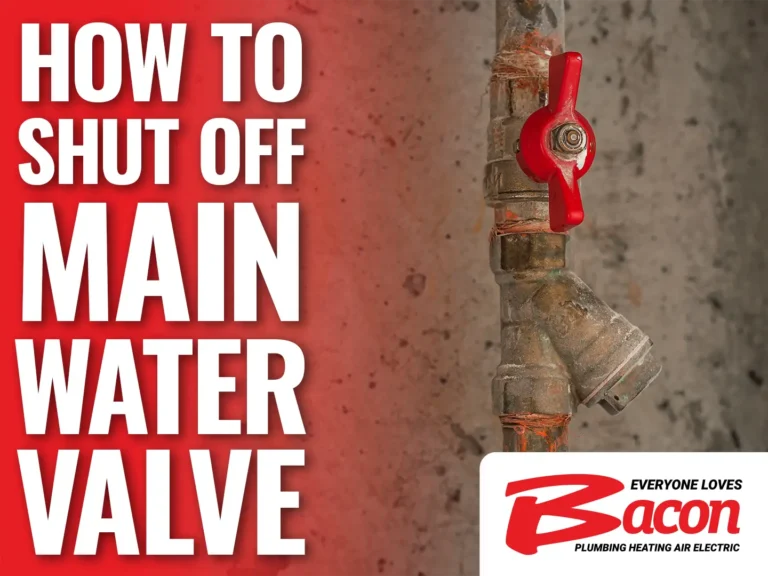Choosing a correctly sized water heater ensures the comfort and energy efficiency of your home. Whether you’re replacing an old water heater or installing a new one, you’ll need to know which variables affect the sizing of your water heater. To help you make an educated selection for your home, this detailed guide will explore the complexities of water heater size and provide essential insights.
Signs to Replace the Water Heater
To avoid interruptions and possible damage, you need to be familiar with the indications that a water heater repair is necessary. If It leaks often, makes strange sounds or produces discolored or rusty water, it might be time to repair or even replace it. Inconsistent temperature, a diminished hot water supply or rust on the tank’s outside are further telltale indications. You also need to consider the water heater’s estimated lifetime, which is usually between eight and 15 years.
Why Water Heater Sizing Matters?
A water heater that is too small can become a serious problem since it’ll struggle to keep up with your hot water demands. A water heater that is too big will be equally problematic thanks to greater standby heat loss, higher electricity bills, and needless energy usage. Finding the sweet spot guarantees peak efficiency, excellent performance, and complete satisfaction with your water heater for years to come.
Knowing How to Choose the Right Size Water Heater for Your Home
The right size water heater for your needs depends on a variety of factors, including the number of people living in your home, the flow rates of fixtures, and the kind of fuel you use. Let’s take a close look at nine aspects to consider.
1. Household Size
In most cases, the square footage of your home can offer critical guidance in choosing a water heater of the right size. Obviously, if your home and family are large, you’ll need a larger water heater than a single-bedroom home with one resident. A good rule of thumb for estimating the necessary capacity is to allocate around 10 to 15 gallons of water per person. A water heater with a 40 to 60 gallon capacity, for instance, could work well for a four-person family.
2. Peak Hourly Demand
Finding out how much hot water your house uses at its busiest hourly rate is critical. During peak demand times, such as in the mornings or evenings, you’ll need to think about how many hot water appliances are in use at once, including showers, faucets and dishwashers. To get the peak demand, add up all the flow rates of these appliances. At the busiest times, a water heater with a faster recovery rate will be able to keep the water hot without interruption.
3. Flow Rate of Fixtures
The flow rates of your home’s fixtures and appliances reveals how much hot water they use each minute. Knowing these flow rates is essential to selecting a water heater that’s capable of meeting the flow rate demands during peak consumption.
4. Temperature Rise
The temperature rise is the amount of time it takes for the water to heat up to the point where it reaches the required temperature. To determine it, take the temperature of the entering water and subtract it from the temperature of the hot water you want to use. A greater temperature increase is needed when dealing with water that is already chilly. To find out how much of a temperature increase your water heater needs, you can look at your local climate and the water temperature in the ground.
5. First-Hour Rating (FHR)
Another important measure is the First-Hour Rating (FHR), which shows how much hot water a water heater can provide in the first hour of usage. It takes the capacity of the tank and the rate of recovery into consideration. To make sure that the water heater can provide enough hot water during times of heavy consumption, a greater FHR is especially crucial for residences with high peak needs.
6. Fuel Type
You should give serious thought to the fuel type that your water heater uses. Electricity, natural gas, propane, and solar power are some of the most common forms of fuel. Considerations such as these fuel sources’ efficiency, cost and availability can play a role in your choice. Homes with greater hot water needs are better suited for natural gas or propane heaters because of their quicker recovery rates compared to electric ones. And though they may not have the same capacity, solar water heaters use less energy.
7. Energy Efficiency
When looking for a water heater, energy efficiency should be a top priority. An aesthetically pleasing water heater with a larger capacity may not always be the most efficient. A smaller, more energy-efficient type may actually work just as well or even better. You should try to choose a water heater that has a high Energy Factor (EF) rating since it means it converts energy efficiently into hot water. Models that are energy efficient help to decrease utility costs and lessen the effect on the environment.
8. Space Constraints
Think about where you’ll be putting the water heater. The size of the tank determines the amount of room needed for a conventional water heater. Tankless water heaters are a more space-efficient option for homes with restricted square footage. Installing these units on walls allows for more installation options and makes it easy to heat water on demand.
9. Life Expectancy
An important but often disregarded consideration is the water heater’s expected lifespan. It may be worthwhile to pay more upfront for a water heater if it has a longer lifetime. To determine how long a water heater is likely to last, you should look at its build quality, warranty details and customer reviews. A long-lasting unit guarantees dependable functioning and decreases the frequency of replacements.
Does Maintenance Improve Water Heater Lifespan?
To keep your water heater running for a longer period of time, regular maintenance is essential. When silt, mineral deposits, and rust accumulate over time, they can reduce the unit’s efficiency and shorten its lifespan. This is why it’s important to have a professional do routine maintenance, including draining the tank, checking the anode rod and monitoring for leaks. Additionally, by detecting and fixing any issues early on, routine maintenance lessens the likelihood of catastrophic failures that may bring the whole system crashing down. By swiftly fixing any damage, keeping the water pressure right and checking that the thermostat is working correctly, maintenance extends the life of your water heater, which in turn improves its performance and saves you from having to replace it or pay for expensive repairs too soon.
Bacon Plumbing Heating Air Electric is here to help you with all of your water heater installation, replacement and maintenance needs. We also offer a variety of heating, cooling, indoor air quality and electrical services. Many Plano, TX, homeowners turn to us for their drain and sewer needs. Call us today to speak with a licensed technician about selecting the right size water heater for your home.



